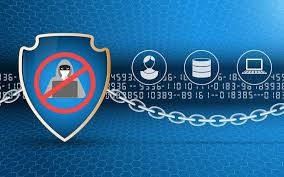
The threat of hacking has become increasingly pertinent in today’s digital age. As technology continues to advance, hackers have found inventive ways to breach even the most secure networks. In order to stay ahead of the game and remain protected from malicious attack, businesses and organizations must implement contemporary anti-hacking protocols.
First and foremost, users should ensure that their passwords are sufficiently complicated. Security experts suggest creating passwords that merge upper-case letters, lower-case letters, numbers and symbols for maximum protection. Additionally, it is important to change passwords frequently to stay one step ahead of potential intruders. Implementing two-factor authentication can bolster a system’s security as an additional layer of protection is required before entering the system.
Encryption technologies are another useful tool in thwarting hackers. Encryption scrambles information so that outsiders cannot decipher or benefit from any data they may come across while attempting to penetrate systems. For example, HIPAA compliance requires messaging platforms such as email systems use encryption when sending private patient information.
Organizations should also be sure to protect any mobile devices and computers with antivirus software and firewalls which can detect and stop suspicious activity before files can be corrupted or compromised by malicious actors. It is important to maintain software regularly by downloading updates as soon as they are released in order for these protective measures to remain effective against the ever-evolving cyberthreat landscape.
Finally, companies should consider educating all employees about cybersecurity protocols in order to create a culture of cyber awareness throughout the organization. This will ensure that all personnel are informed about accepted practices for keeping confidential data secure at all times including implementing strong password protection practices, refraining from accessing public networks through work computers and being aware of any phishing attempts made against members of the company or organization.
By taking diligent steps towards implementing contemporary anti-hacking protocols such as strengthening passwords with two-factor authentication along with software updates, encryption technologies and proper staff training regarding cybersecurity issues on an ongoing basis, organizations can increase their capacity to safeguarding sensitive data against malicious infections and data breaches no matter how sophisticated cyber criminals become in today’s digital age.